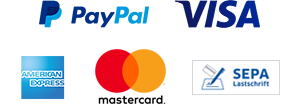Maximizing Marketing Efficiency with Campaign Automation Tools

Maximizing Marketing Efficiency with Campaign Automation Tools
In today’s fast-paced digital landscape, companies need to optimize their marketing strategies to stay competitive. Campaign automation tools have emerged as a game-changer, allowing marketers to automate repetitive tasks, manage customer relationships, and execute campaigns effortlessly. By integrating these tools, businesses can save valuable time and resources while enhancing their outreach efforts. One example of a platform that leverages automation in its marketing strategy is campaign automation tools Soft2Bet casino, which effectively engages its audience and streamlines its operations.
Understanding Campaign Automation
Campaign automation refers to the use of technology to streamline, automate, and measure marketing tasks and workflows. These tools assist marketers in managing campaigns across multiple channels, automatically triggering communications based on customer behavior and interactions. From email marketing to social media posts, campaign automation tools can significantly improve the efficiency of marketing efforts.
One of the primary benefits of campaign automation is that it allows marketers to nurture leads at scale. Rather than manually following up with each potential customer, automation tools can send personalized messages based on specific criteria, such as a user’s previous interactions with the brand.
Key Features of Campaign Automation Tools
1. **Email Automation:**
Email marketing is one of the most effective channels for customer engagement, and automation tools can help manage this process effortlessly. Features such as drip campaigns, segmentation, and triggered emails enhance the communication process by sending the right message to the right audience at the right time.
2. **Customer Relationship Management (CRM):**
Many campaign automation tools integrate with CRM systems, helping businesses manage their customer data and interactions more effectively. This integration allows for better tracking of customer journeys, helping marketers understand where a customer is in the buying process.
3. **Analytics and Reporting:**
Data-driven decision-making is vital for successful marketing campaigns. Automation tools typically offer in-depth analytics to track the performance of campaigns, providing insights into what works and what doesn’t. This data can be used to refine future marketing strategies.
4. **Social Media Automation:**
Managing multiple social media accounts can be challenging. Campaign automation tools allow marketers to schedule posts, track engagement, and analyze post-performance across different platforms, saving time and ensuring consistent communication.
5. **Lead Scoring and Nurturing:**
Automation tools often enable lead scoring, which ranks prospects based on their engagement levels. This feature helps marketers prioritize leads and tailor their communications accordingly, improving conversion rates.
Benefits of Using Campaign Automation Tools

The introduction of campaign automation tools provides a variety of advantages that can transform marketing efforts:
– **Increased Efficiency:**
Automating repetitive tasks frees up time for marketers to focus on strategy and creativity. This efficiency can lead to quicker execution of campaigns and better alignment with business goals.
– **Personalization:**
With automation, marketers can deliver personalized messages at scale. By segmenting their audiences based on behavior, marketers can create tailored content that resonates with recipients, fostering customer loyalty.
– **Improved ROI:**
Campaign automation tools can lead to higher returns on investment (ROI) by optimizing marketing efforts. By creating targeted campaigns and measuring their performance, businesses can allocate resources more effectively.
– **Scalability:**
As businesses grow, their marketing needs become more complex. Automation tools can easily scale with the business, accommodating an increasing amount of leads and customer interactions without sacrificing quality.
– **Enhanced Customer Experience:**
By ensuring timely and relevant communication, campaign automation tools contribute to improved customer experiences. Automated messages can provide valuable information and assistance during critical points in the customer journey.
Challenges of Implementing Campaign Automation
Despite the numerous benefits, businesses may face challenges when implementing campaign automation tools:
1. **Complexity:**
Many automation platforms come with steep learning curves. Proper training and support are necessary to ensure that teams can leverage the full potential of these tools effectively.
2. **Integration Issues:**
Some businesses may struggle to integrate their existing systems with new automation tools, affecting workflow efficiency. Ensuring compatibility is critical to avoiding disruptions.
3. **Over-Automation:**

While automation can enhance efficiency, over-relying on automated messages can lead to a lack of personal connection with customers. Striking a balance between automation and personalized engagement is essential.
4. **Data Privacy Concerns:**
With increased focus on data protection regulations, businesses must ensure compliance when using automation tools. Transparent data collection practices are necessary for maintaining customer trust.
Popular Campaign Automation Tools
Various tools on the market can help businesses automate their campaigns. Here are a few popular options:
– **HubSpot:**
HubSpot is a comprehensive inbound marketing platform that offers robust campaign automation features, including email marketing, CRM, and analytics.
– **Mailchimp:**
Initially known for its email marketing capabilities, Mailchimp has evolved into a complete marketing platform, offering automation features, landing pages, and social media tools.
– **Marketo:**
Marketo is a powerful marketing automation tool widely used by organizations that require advanced features like lead nurturing, scoring, and personalized marketing campaigns.
– **ActiveCampaign:**
This platform combines email marketing, automation, and CRM features, providing users with the ability to create complex customer journeys.
– **Pardot:**
Owned by Salesforce, Pardot is designed for B2B marketers and focuses on nurturing leads through tailored communications and effective lead scoring.
Conclusion
In summary, campaign automation tools are essential for modern marketing strategies. By effectively automating repetitive tasks, managing customer relationships, and delivering personalized content, businesses can streamline their marketing efforts and achieve higher efficiency. However, it is crucial to be aware of the challenges that come with implementing these tools and find the right balance between automation and personal engagement. As technology continues to evolve, embracing campaign automation will be key to staying ahead in the competitive landscape of digital marketing.

